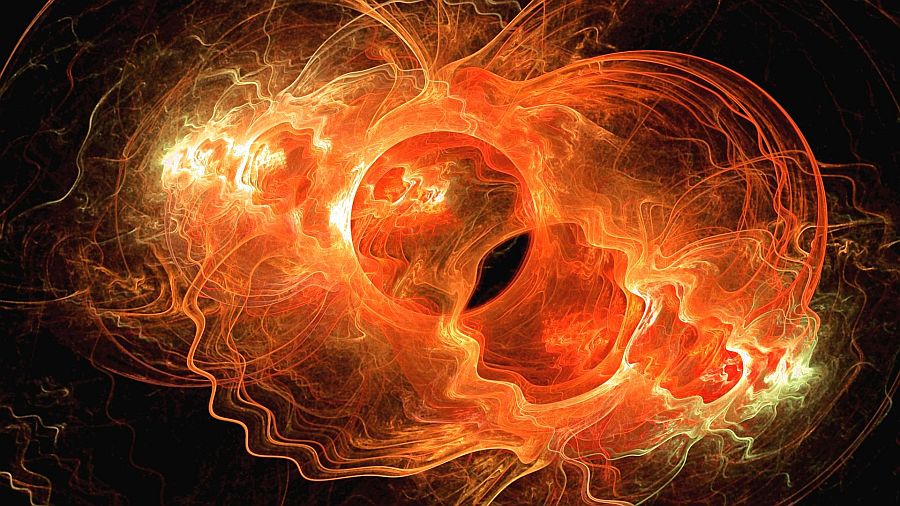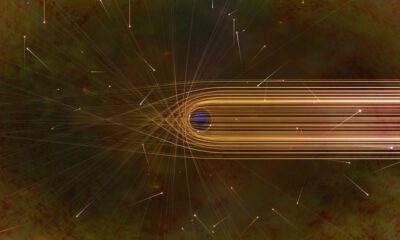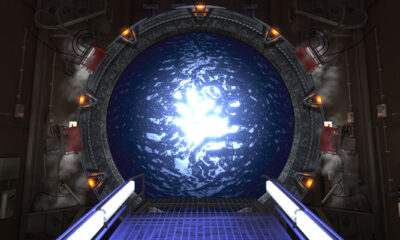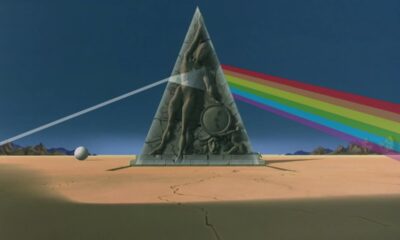
A REFLEXION ON THE OMNIPOTENCE PARADOX,
by GNADOU ATHYTHEAUD
Here, the question is not if God exist or not; moreover, the existence of God should better be asked as « does exist such a thing that can be God? » Then, it is useless to talk about God without establish what it could be, or what it is. If God is, it should be something, in the sense of having characteristics. What is known or called as God is perceived as omnipotent. Does omnipotent means « everything », or capable of everything?
We should first say that being everything is being one thing and its contrary, which is contradictory. The contrary of a thing is the negation of this thing, then being the contrary of what oneself is means to not exist: What is contradictory can not exist; what is simultaneously a thing and its contrary can not be.
If God is omnipotent in the sense of being everything, then God is not. If God is, it can not be everything. Then if God is not everything, God is not omnipotent; as being omnipotent is a quality or the nature of God, would then God lack the quality of God, or not be God?: Then God would not be God, then God could not be God.
Then, is really God omnipotent?
If God is omnipotent in the sense of being capable of everything, then of being capable of the contrary of what oneself is capable of, or in better words, of being capable of what oneself is not capable of, then would it means to not being capable?In effect, being capable of what oneself is not capable of is to be not capable to not do what oneself can not do: then being capable of doing what oneself can not do would create another contradiction, or worse, another limitation, as it would mean that the thing capable of doing everything is not capable of having (its own) limitations. As God is seen as omnipotent in the sense of (capable of) being everything and capable of everything, it is commonly perceived as contrary to God omnipotent characteristics for God to have limitations, in the sense of not being capable of doing what it can not do, and in the sense of not (being capable of) being what it is not.
In fact, God is because it obey to its own rules, which are the rules of logic. Could we then consider than God is the Logos itself? Let’s ask the nature and being of God through the truth table: 1. God can do what it can not do (CAN and CAN NOT = True and False = False) 2. God can not do what it can (CAN NOT and CAN = False and True = False), as False and True = True and False, their results are the same (False); it is the reversibility principle.
Seek to a God which can do « all things », including what is not in its capabality, or nature, and seek to a God which can not do what is in its capability, or nature, it is seeking to a God which is « false » or do « false » things, in the sense of a contradictory God, or a God which do contradictory things. Contradiction is internal conflict; God can not, according to its nature, be in conflict with itself, as it perfect and complete, only limited by what is not perfect or complete: the lack and the illogical. Lacking the illogic is not a lack for God as God doesn’t lack what is, considering that all what it is is logical or obey to logic. So lacking the illogical is not a lack as what is illogical is not; thus you can lack what is not: you would then lack nothing. Then considering that God doesn’t lack all what is, God doesn’t lack anything which is, in the sense of which is logical. Considering that logic is God nature, God doesn’t lack what it is, but could only lack of what it is not, which is not, because God could only lack which is not in its nature, what means God could only lack what is not God/Logic. Here we see that in what God can do, it is included what God can not. If God can only can, but can not to not can, then God could not can to not can.
God can not be contradictory to itself, and God can not do things contradictory to itself; if God is being contradictory to itself or doing things contradictory to itself, then God would contradict itself, and not be, which is impossible because God can not to not be and can not be other than itself, and God can not acts differently to itself and its nature.
As God can only be true, being always true being God’s nature, God can not be false and doing things which are false. Then God can do what it can (CAN and CAN = True and True = True), Then God can not do what it can not (CAN NOT and CAN NOT = False and False = True). Thus God can lead to true or false assumptions, but not simultaneously, and God can only be false regarding what it is not; It is false that God is what it is not, it is false that God can do what it can not do, which means that it is true that God is not what it is not, and that it is true that God can not do what it can not do.
Then God, to be true, can only be or true, or false, in relation with the same contradictory proposition, but can not be both true and false to the same contradictory proposition. In effect: 1.False or True = True
2.True or False = True,
God could only be ultimately true to itself, which is what it is, whis is to be, which is to be true (whis is to be God?), this in relation with any proposition, the proposition being contradictory or not: contradiction could not contradict God (with itself), as God stay (equal and true to) itself; God contradict the contradiction, as the contradiction is ultimately what is not true (with) itself. God can not contradict itself (the truth can not contradicts itself), even if it mean to not suit with the contradiction.
God can not suit with the contradiction because the contradiction, whose nature is to not suit with itself, doesn’t suit with the truth or the logic, considering this, we could say that God can not suit with the contradiction because the contradiction can not suit with God nature, which is the truth/the logic. God can not be contradictory, because the contradiction is not, because the contradiction can not be, while God is . . . while God can not to not be?
The contradiction can not make true what is false, as the contradiction can not make false what is true; the contradcition can not contradict, the truth, which is God, which is logic. God itself can not make true what is false, God itself can not make false what is true, if making true what is false and making false what is true is contradictory (and it is!) to the logic, to the truth, to the nature of God.
God, which is and which is true, can not suit with the contradiction, which is false and which is not, as God can not suit with what is not, because it is false, as God can not suit with what is false, because it is not.
Moreover, the fact that God can not do what it can not do is not a negation of God, but if not a logical proof of its existence, at least a proof of its consistency. In effect: CAN NOT and CAN NOT = False and False = True
God is because it has limitations, as all things which exist have limitations; even noneless have limitations, its limitations being what is, the existent. The only thing having no limitations is the matrice, origin of all and even of God of which it is the supreme or paramount form, the matrice, which is and is not, or better the matrice which encompasses what is and what is not. There where nothing and the first impulsion to-or-of creation gave to God (by Good itself as its own matrice) the being and the possibility to do, and God is, and God is all what is; God can not be something else, and God can not be what it is not, or what is not.
What is respect logical rules, so God could only be by respecting logical rules. What is not is the premisses of material/matter; matrice is the material/matter, or its origin and forming force. If God, and everything else, has no limitations, it would not be. The matrice is and is not, as it has no limitations, matrice only limitation could be of being limited by « what is another thing that what is and is not ». The only limitations of matrice is « what is which is not nil » and « what is nil which is not ». As it do not exist a thing that is and is not, except the matrice itself, then the matrice is limited by itself. The matrice is because it is not, the matrice is not because it is.
The matrice is limited by what it is not, as the matrice is what is and what is not, simultaneously, the matrice is limited by what it is not. Thus, matrice is limited by what can not not be and be simultaneously, thus the matrice is limited by what is which is not none, and by what is not and is not something. Matrice is limited by God, which is and can not to not be, and by noneless, which is not and can not be; nevertheless God and nil are parts of the matrice, things of matrice, regardless if they are or not.
God, which is, is included in its paramount form, supreme and non-intelligible matricial God, which include everything which is and is not.
Matrice is, as it is what is and what is not, so what is the contrary to the matrice? The contrary of the matrice is the contrary of « what is and what is not », so basically the contrary of the matrice is separately, what is, and what is not. The matrice is the all, its contrary can only be its division, the division of all -all being what is and what is not- the contrary of matrice is the division between what is, and what is not. When you divide what is and what is not, as if they were distinct while their are parts of the same matrice, you create two omnipotent by their own, as matrice is really ominpotent as it is all (what is and what is not, what can and what can not), but the matrice is limited by these two semi-omnipotent things which the matrice can only be in part (can the all be fully itself and its own part?) as they are semi-matrice, meaning semi-omnipotent, and the matrice can not be semi, but only omni.
We could otherwise say that as the matrice is both all which is, and all which is not; the matrice is dually semi-omnipotent. As the two semi-omnipotent things are the semi-omnipotent being and the semi-omnipotent not being, the matrice is a totally omnipotent thing or being because it is both the two only forms of semi-omnipotent things or being, which contradictory or limitations to each others, form together, or are formed together by the omni-omnoptence, which is the matrice.
But if there is a omni-omnipotent thing which is the matrice, can we say the matrice is all, while there could be a thing which is contrary to the omni-omnipotent thing? Only pure nil can be what is contrary to all which can be and not be: pure noneless is not only the pure nothing, but the no-capability of being, or even the no-capability of not bring, because no capability is granted to it at all, even the capability of not being capable to be. The matrice is not the pure nil, and pure nil is not included in the matrice, as the matrice implies by itself the capability, of being and or of not being. The matrice exists, and if the matrice exists, then even if nothing exists, the capability of existence is, so pure nil can not exist. Could we then determine the no-capability of being as a pre-matrice state or as the negation of the matrice?
From LIMITS AND BEING OF GOD, OF THE MATRICE AND OF NIL, by GNADOU ATHYTHEAUD









Facebook
Twitter
Pinterest
Google+
RSS